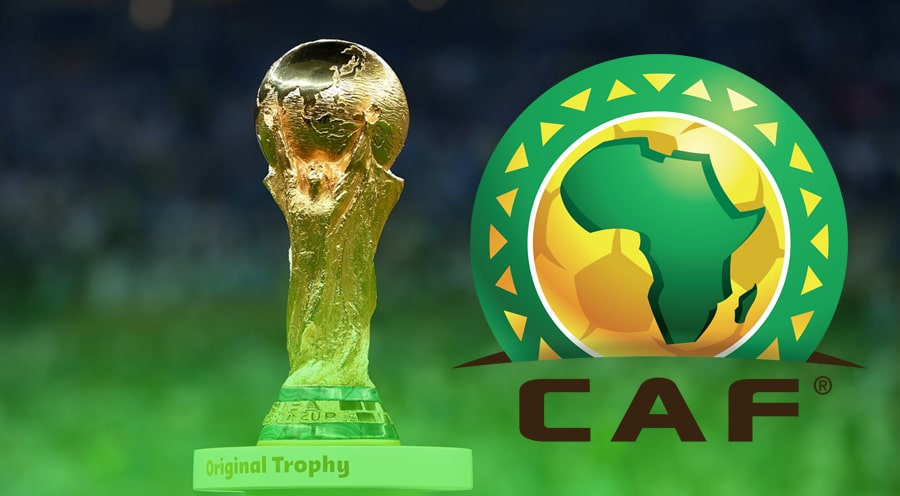Home » Africa’s New World Cup Qualifying Format

In a significant shift, Africa has revamped its World Cup qualifying system, opting for a single-stage process to determine the continent’s automatic qualifiers for the next World Cup in North America. Traditionally, Africa utilized a three-tier system that involved a preliminary stage, a group stage, and two-legged play-offs. However, this approach has now evolved to a simpler and more streamlined format.
The Evolution of African World Cup Qualifiers
For the 2026 World Cup, which will be hosted by the United States, Canada, and Mexico, Africa will see a substantial increase in its representation. Instead of the five slots allocated for the 2022 World Cup in Qatar, Africa will now have nine guaranteed spots, with the possibility of a tenth through inter-continental play-offs.
The Draw – A Full House of Entrants
The draw for the nine groups, where only the group winners will automatically qualify, took place in Abidjan in July. Remarkably, all 54 members of the Confederation of African Football (CAF) entered the competition, including Eritrea. Eritrea had been absent from international football for three years due to a series of defections by team members during matches outside their borders.
The Significance of Full Participation
It’s a considerable achievement for CAF to have a full complement of entrants in the qualifiers. However, it’s worth noting that FIFA members risk losing subsidies from the world football governing body if they do not meet the required level of participation in competitions.
Seeded Draw According to FIFA Rankings
The draw for the groups was conducted based on FIFA rankings, with eight of the top-seeded teams having previous World Cup experience. The only exception is Mali, making them a team to watch closely in this new qualifying format.
Group A: Egypt, Burkina Faso, Guinea-Bissau, Sierra Leone, Ethiopia, Djibouti
Group B: Senegal, Congo DR, Mauritania, Togo, Sudan, South Sudan
Group C: Nigeria, South Africa, Benin, Zimbabwe, Rwanda, Lesotho
Group D: Cameroon, Cape Verde, Angola, Libya, Eswatini, Mauritius
Group E: Morocco, Zambia, Congo, Tanzania, Niger, Eritrea
Group F: Ivory Coast, Gabon, Kenya, Gambia, Burundi, Seychelles
Group G: Algeria, Guinea, Uganda, Mozambique, Botswana, Somalia
Group H: Tunisia, Equatorial Guinea, Namibia, Malawi, Liberia, São Tomé & Príncipe
Group I: Mali, Ghana, Madagascar, Central African Republic, Comoros, Chad
Group E: Morocco’s Challenge
After their impressive performance in Qatar, Morocco will lead Group E. Their most formidable rivals in this group will be Zambia, who have secured qualification for the next Africa Cup of Nations finals under the guidance of Avram Grant.
Group B: Senegal’s Smooth Path
Reigning African champions Senegal appear to have a straightforward path to their third successive World Cup appearance. In Group B, the Democratic Republic of Congo stands as their most credible opponent. While the Congolese have shown potential, they have been hindered by administrative challenges that have impeded their success.
Group D: Cameroon’s Challenge
Cameroon, with eight previous World Cup finals appearances, holds the African record. Their victory over Brazil in Qatar last November remains a historic achievement. In Group D, they will face Angola and the Cape Verde islands. While on the surface, it might appear manageable, both Portuguese-speaking nations have previously posed challenges for Cameroon.
Group C: Nigeria’s Talented Squad
Nigeria boasts one of the most talented squads, with several players making their mark in European club football in recent seasons. They are placed in Group C, where South Africa is expected to be their most formidable rival. The group also includes Zimbabwe, who had previously faced FIFA sanctions due to government interference in their football association.
Group H: Comfort for Algeria, Egypt, Ivory Coast, and Tunisia
Algeria, Egypt, Ivory Coast, and Tunisia find themselves in relatively comfortable positions in Group H. Their opponents include Equatorial Guinea, Liberia, Malawi, Namibia, and Sao Tome & Principe, making it a seemingly straightforward path to qualification.
Group I: Mali’s Tough Challenge
Mali had a golden opportunity to secure a spot in the 2022 finals but were narrowly edged out by Tunisia in the play-offs due to a bizarre own goal. In the upcoming qualifiers, Mali will face a challenging path in Group I, alongside Ghana.
Qualification Timeline
The African World Cup qualifiers kick off with two matchdays in November and continue from June the following year after the conclusion of the Africa Cup of Nations finals in the Ivory Coast. The qualifiers will conclude in October 2025, with each country playing ten games.
Knockout Play-off for Additional Spot
To determine a sole African representative for the new-style inter-confederational play-off, the four best group runners-up will compete in a knockout play-off. These crucial games are scheduled for November 2025.
In conclusion, Africa’s shift to a single-stage World Cup qualifying system signifies a new era for the continent’s teams. With more guaranteed spots and a simplified process, African nations will be vying for their place on the global stage in North America in 2026. The road ahead promises excitement and challenges, as teams aim to secure their spot in the world’s most prestigious football tournament.